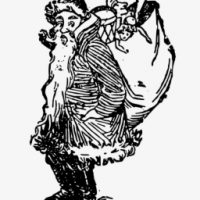From ‘Focus on Faith’, Stretton Focus, January 2013
Many years ago I was asked to lead a workshop at a conference looking at issues involving the regulation of religious programmes on local TV services. At the time there were a few local programmes on cable TV but there was, and still is, no widespread local television.
I remember that we agreed that the multiplicity of cultures and religions in our society must be respected, that access to local TV must be on an equal basis, and should be seen to be on an equal basis within each community. At that time established faiths dominated national religious programming and the challenges of local Mormons, or radical Islamists, seeking airtime had yet to be addressed.
One member of our workshop reported back to the main conference – his name was Rabbi Hugo Gryn. Hugo survived Auschwitz as a teenager. His father and brother died there. He became Rabbi of the West London Synagogue, one of Europe’s largest, in 1965 and served his congregation until he died in 1996. His contributions to Radio 4’s “Thought for the Day” for much of that time are fondly remembered.
Forgiveness often featured in his talks, although he said that only God could forgive the Holocaust. His messages crossed the demarcation lines which religions draw around themselves and focused on the presence of ‘god’ (by whatever name) in every man. I recall his spirituality as if it were something tangible; to work with someone I so admired was memorable.
In this memory I can see that he helped me think about my faith in new ways. Religions seek convoluted explanations of how a supposedly all-powerful and merciful god can permit the violence of concentration camps, the Sarajevo massacres or tribal genocide. The truth is that powerful people inclined to such violence need no permission. We have to recognize that goodness is a human characteristic. When people demonstrate negative goodness, religions will give words to their gods to explain any resulting human inhumanity.
The spirituality I saw in Rabbi Hugo Gryn was profoundly human. He was a victim of unimaginable physical and mental violence, who sought no explanations, only understanding. He understood the power that lies in human choice, and in that understanding his humility and humanity shone out.
Roger Wilson



